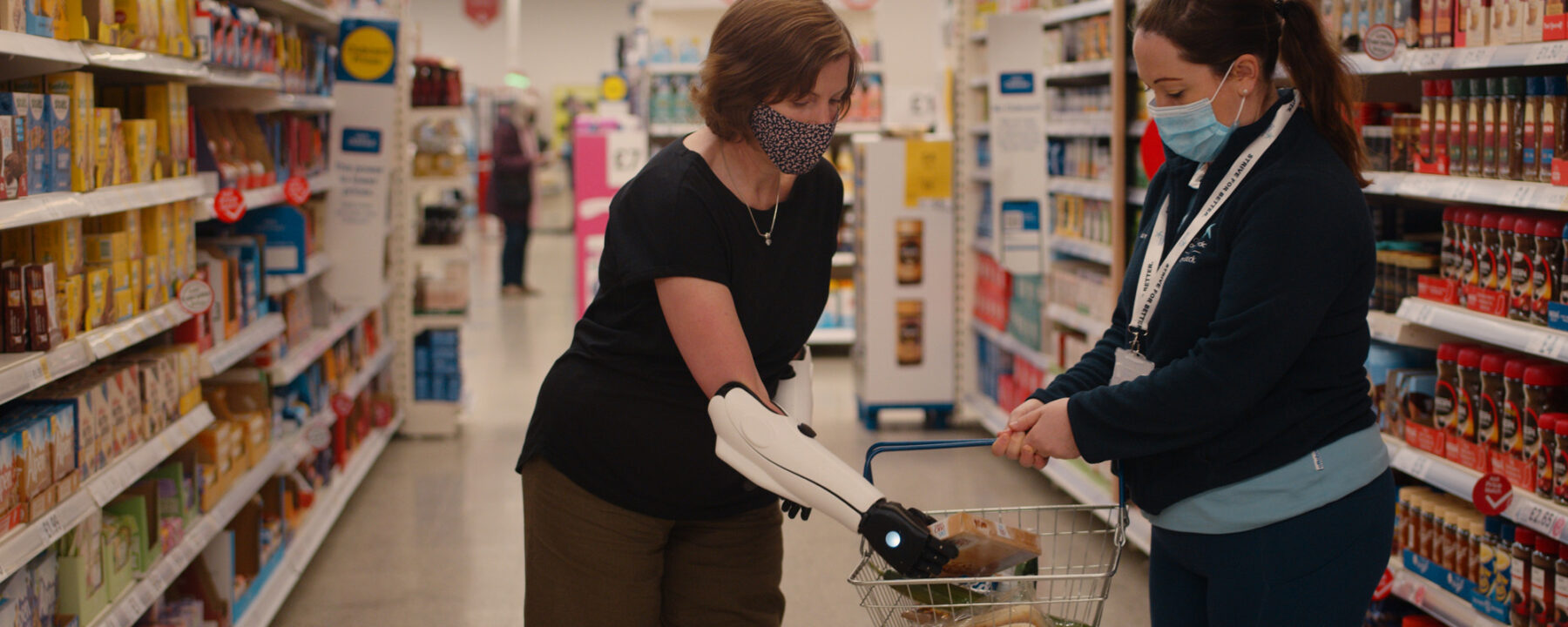
Physio Facts - The Benefits of Taking Patients into Real World Scenarios
The differences we see in clinic when patients attend for residential rehabilitation are phenomenal and you can really see the joy (and often shock) in patients’ faces as they do things they probably didn’t think would ever be possible following their amputation.
During residential rehabilitation, we like to venture out of clinic, not only to prevent looking at the same four walls, but also to rehabilitate patients in the real world! At Dorset Orthopaedic we appreciate that walking on a new prosthetic on a smooth and level laminate floor with plenty of equipment nearby is VERY different to walking in a busy supermarket or in a park with cobbled paths and obstacles to dodge. So, once our patients are ready, we begin to transfer the skills learnt in clinic in to more realistic environments. Of course, this depends on what stage the patient is at in their rehabilitation journey, but even if they’re currently dependent on parallel bars to walk, we will still get out of clinic for a change of environment - for hydrotherapy, to teach functional tasks outside or to practice self-propelling in different environments, for example.
The most common places we explore with our patients outside of clinic tend to be parks and forests. These locations allow patients to complete longer walks over varying terrains and inclines whilst also targeting their endurance – including both the tolerance to their prosthetic and their cardiovascular fitness. During these walks, patients are repeatedly transferring the skills we have practiced in clinic, for example; balance and proprioception drills or stair technique, in to a real life scenario, often without even realising it!
It is really important to remember that every patients ‘real life’ was different prior to their amputation and that means that each patients goals will be different too. Because we have the time and flexibility at Dorset Orthopaedic to practice more advanced skills, we really get to know our patients and identify their goals, no matter how big or small, to ensure our rehabilitation is individualised to them. We ask our patients to be honest and not hold back on what they would like to be able to achieve and we will try our hardest to help them reach their goals. In the past, we have helped our patients return to skiing, rock climbing and canoeing – to name a few!
The biggest feedback we receive from patients after practicing new skills during residential rehabilitation is how much it has helped their confidence. Often our patients have the ability to complete tasks, they’re just unsure how or lack the confidence to do it themselves. Rehabilitating our patients outside of clinic makes it much more transferable for patients to continue practicing new skills at home, or in different environments local to them, meaning their confidence in the task can be maintained or even developed further. We also visit our patients homes at times to practice their goals in their real world, whether that might be walking down a ramp to access their property or completing a more challenging walk local to them.
